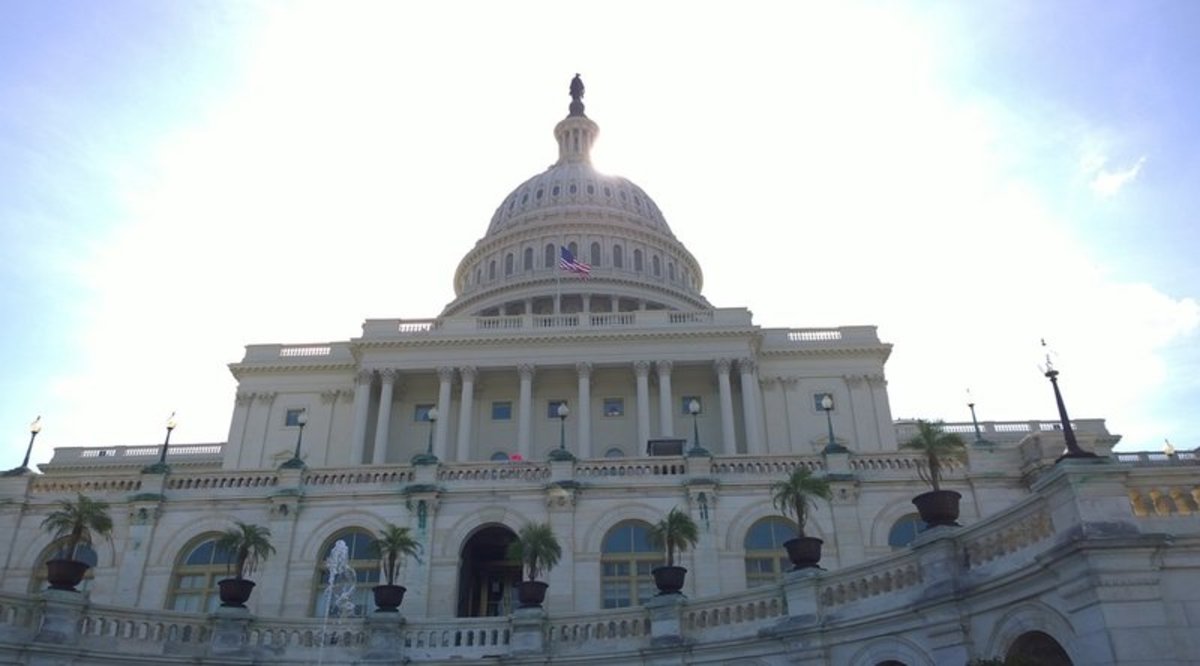
A year ago, Bitcoin Magazinehighlighted the work of U.S. Congress Representative Jared Polis and noted his work meeting with politicians and businesses, promoting the many economy-building possibilities of Bitcoin and, by extension, blockchain technology.
A year later, Rep. Polis, a Democrat from Colorado, along with Rep. Mick Mulvaney, a Republican from South Carolina, announced the formation of the first congressional caucus to promote and educate members of Congress, and the general public, about the potential of digital currencies and other blockchain-based technologies.
To increase its influence and effectiveness, the new caucus is bipartisan, welcoming members from both political parties.
“Congressional caucuses are very important for like-minded members of Congress to work together toward common policy goals,” said Jerry Brito, Executive Director of the Coin Center advocacy group. “We are very excited by the formation of the Congressional Blockchain Caucus and look forward to continuing working with its members to chart a path forward with the same type of light touch regulation that the early internet benefited from just a few decades ago.”
Recently Brito was named to the Politico Top 50 influencers in Washington D.C., along with Coin Center board members Marc Andreessen and Fred Wilson.
Rep. Polis is also an acknowledged “thought leader” in the digital currency movement due to his long-term support. He was the first politician on the Hill to accept donations in bitcoin.
“The blockchain has boundless potential," Rep. Jared Polis said in a news release.
"From cryptocurrencies to supply chains to banking to property titling, blockchain-based solutions have the ability to decentralize cybersecurity and revolutionize many industries. It's vital for Americans, businesses, and members of Congress to learn about blockchain technology so the U.S. can continue to secure its stance as the global leader of ingenuity.”
“The Blockchain Caucus will focus on raising awareness, advancing ideas that foster growth, and safeguarding consumers. I'm excited to work alongside Rep. Mulvaney, and I look forward to all that we'll accomplish."
Republican Representative Mick Mulvaney from South Carolina has been active in meeting with groups like Coin Center that promote the use of bitcoin.
“I’m excited to partner with Congressman Polis to found the Congressional Blockchain Caucus,” said Rep. Mulvaney. “Blockchain technology has the potential to revolutionize the financial services industry, the U.S. economy, and the delivery of government services and I am proud to be involved with this initiative on the ground floor.”
Coin Center Works on Capitol Hill
The Washington, D.C.-based advocacy and education nonprofit think tank, Coin Center, welcomed the new caucus.
“For the past two years we have worked with Representatives Mulvaney and Polis to educate their colleagues through briefings and other events,” said Brito, “and the new Congressional Blockchain Caucus will be a wonderful new platform to continue these efforts.”
“Their forward thinking leadership on blockchain technology in Congress is unmatched,” he added.
The Coin Center will work with the new caucus through the fall elections and will be well positioned to recruit new representatives as they are elected.
Brito is looking forward to the challenge. "With a new Congress coming starting in January, the caucus will be a great platform from which to educate new members about the technology. As more members join the caucus I would expect to see a policy agenda develop. For example, I would love to see the caucus take up the federal safe harbor for non-custodial uses of open blockchain networks that Coin Center recently proposed.”
“Coin Center has been an invaluable resource to help educate me and others on the interworkings, importance of, and issues facing cryptocurrencies and blockchains,” said Rep. Mulvaney. “I look forward to continuing my partnership with Coin Center, and developing relationships with other groups involved in this initiative. I encourage Members of Congress to join the Caucus and get involved as blockchain technology becomes more widely used across communities and companies.”









